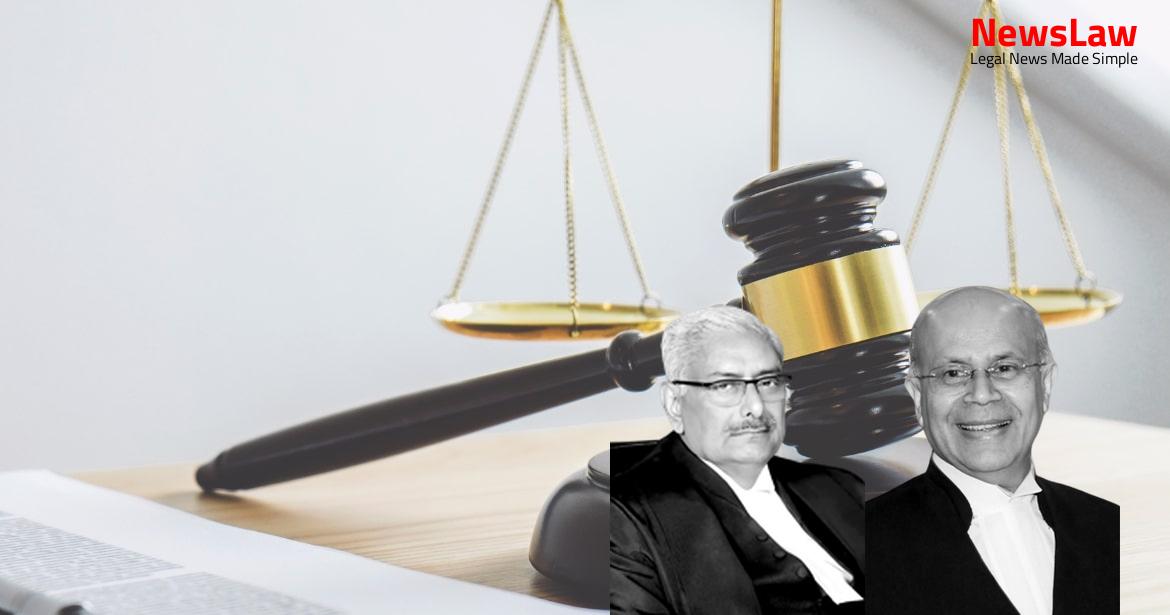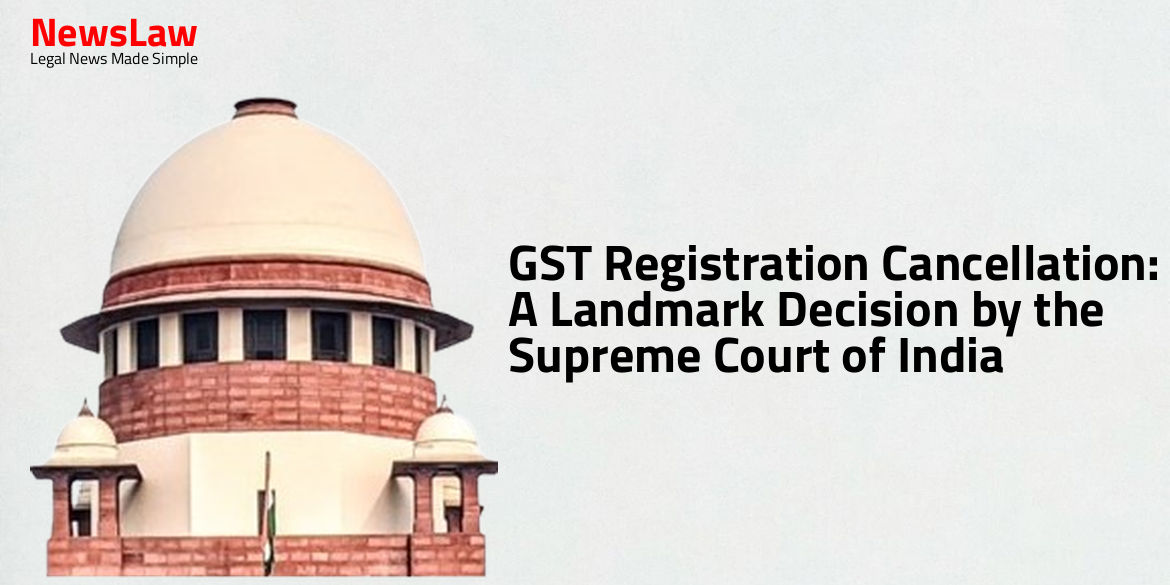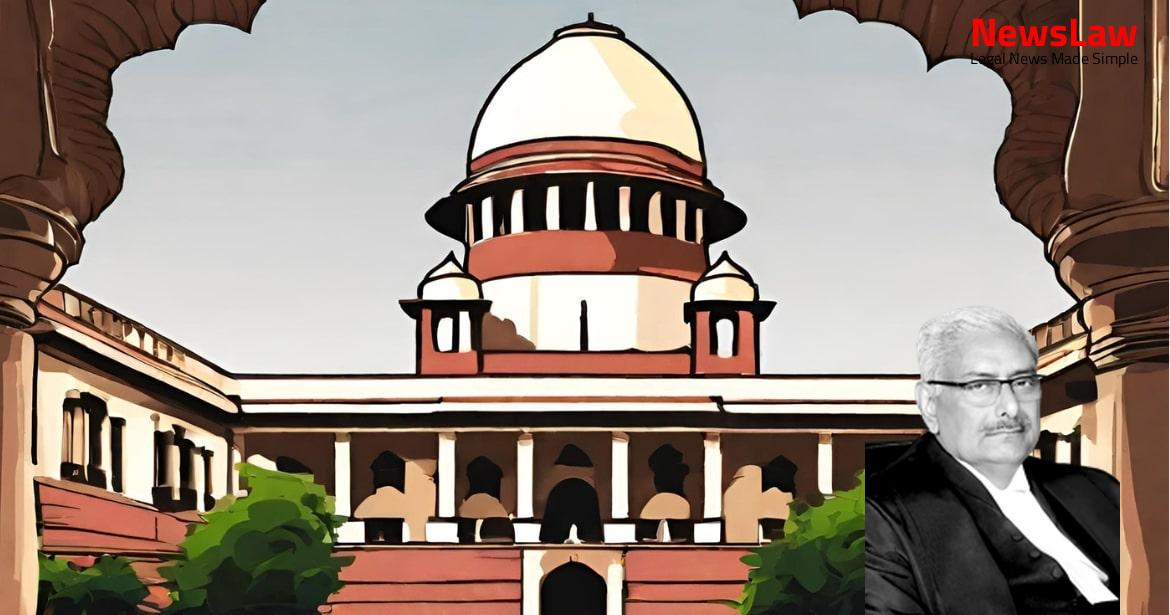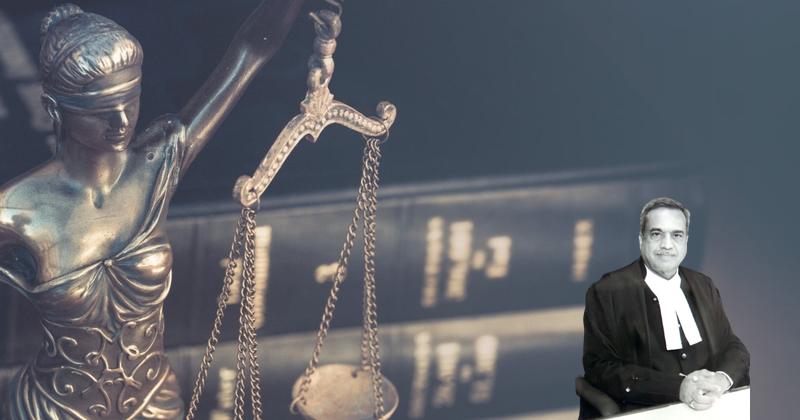In a significant legal development, the Supreme Court of India has issued a judgment upholding legal rights in the education sector. This landmark decision addresses the unlawful termination of a lecturer in a private unaided college affiliated to CCS University. The judgment serves as a precedent for fair treatment of educators and the protection of fundamental rights in the realm of education. Stay tuned to learn more about this groundbreaking ruling.
Facts
- The appellant, a lecturer in a private unaided college affiliated to CCS University, challenges his termination on 24.04.2017.
- The termination was deemed contrary to the provisions of the Act as per the appellant’s counsel.
- The termination did not have prior approval as required by Section 35(2) of the Act.
- The termination order was described as cryptic, non-speaking, and lacked consideration of statutory provisions.
- The High Court erroneously determined that the writ petition was not maintainable.
- It failed to consider the numerous violations and infringement of fundamental rights highlighted by the petitioner.
- The petitioner articulated valid concerns regarding the unlawful actions of the authorities.
- The writ petition should have been deemed maintainable considering the gravity of the situation and the rights at stake.
Also Read: Supreme Court Upholds Conviction in POTA Case: A-10 (Parvez Khan Pathan)
Analysis
- Management decisions regarding dismissal, removal, or punishment of teachers in affiliated colleges must be reported to and approved by the Vice-Chancellor before taking effect.
- Teachers in affiliated colleges must be appointed under a written contract with prescribed terms and conditions.
- The contract must be lodged with the University, provided to the teacher, and retained by the college.
- A provision in Statute 14(A) of Agra University Hand Book did not have a similar requirement as Section 35(2) of the Act.
- The duty of a counsel towards the court is of immense responsibility and fairness to ensure justice is done.
- The lawyer representing an institution is held to a higher standard of conduct and has a moral responsibility towards the court.
- Mutual confidence between Bench and Bar is essential for the smooth functioning of the justice system.
- Lawyers have a duty to double-check and verify information before presenting it to the court.
- A lawyer must always provide the correct position of law, even if it goes against their client’s interests.
- Zeal and enthusiasm are important in a lawyer’s profession, but overzealousness and misguided enthusiasm have no place.
- A lawyer must not hesitate in telling the court the correct legal position, even if it does not benefit their client.
- A lawyer representing the State must present facts truthfully and honestly.
- Misleading the court or dragging settled legal points into doubt only wastes judicial time and hampers justice delivery.
- Failure in the duty towards the court is a wrong against the justice system.
- It is the duty of courts to consider whether a party’s conduct has caused unnecessary waste of court time and take appropriate action.
- A lawyer has multiple duties in discharging his professional assignment: duty to his client, duty to his opponent, duty to the court, duty to the society at large, and duty to himself.
- Misconduct in the legal profession is not necessarily involving moral turpitude and can be relative to the context and subject matter.
- Professional misconduct is grave when it involves betraying client confidence or a deliberate attempt at misleading the court or practicing deception.
- An advocate should strive for a high degree of probity and fairness to arrive at a righteous stand, even in situations with conflicting claims.
- While presenting the law before the court, a lawyer can advocate a proposition as long as it serves the client’s interest and is supported by a process of reasoning.
- The relationship between a lawyer and his client is based on trust and confidence, and a lawyer owes duties to the court and the opposing side.
- An advocate should always remember the ethical and noble nature of the legal profession
- Ambition and achievements are important but should not take away from the sense of duty and ethicality
- There should be a hallowed and honored sense of duty towards the profession
- The termination in this case goes against the provisions of the Act and is therefore set aside
Also Read: TAFRC Fee Determination Case: Upholding Expert Authority
Decision
- Respondent management can proceed afresh in accordance with the law from the stage of irregularity.
- Vice-Chancellor will consider any request for approval on its own merits in accordance with the law.
- The Vice-Chancellor will not be influenced by any observation in the present order.
- The question of back wages, if any, will abide by the decision of the Vice-Chancellor.
- The appellant is entitled to reinstatement.
- The appeal is disposed of.
Also Read: Urs Family Property Dispute: Supreme Court Decree
Case Title: LAL BAHADUR GAUTAM Vs. THE STATE OF UTTAR PRADESH
Case Number: C.A. No.-004794-004794 / 2019



